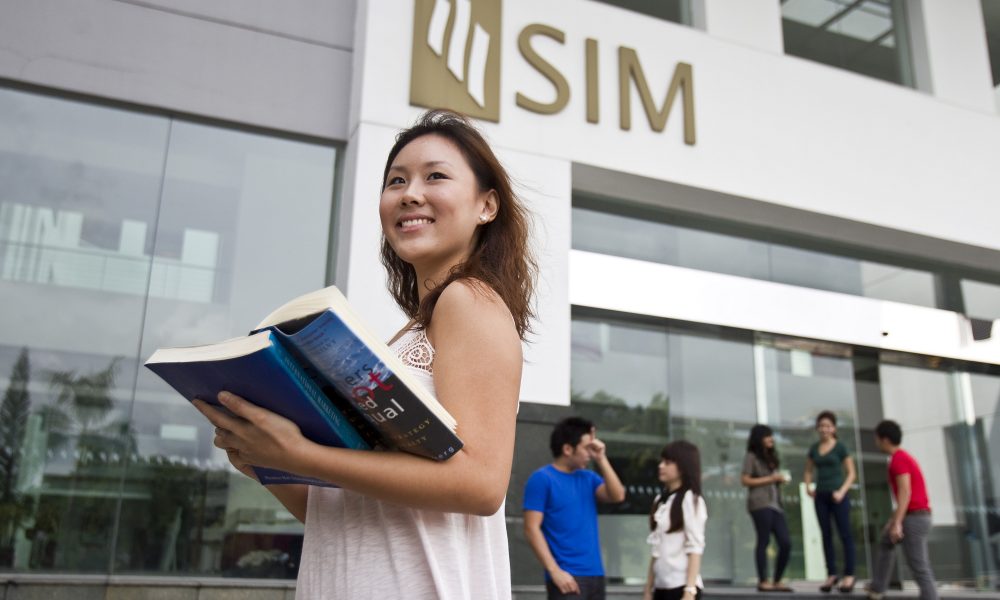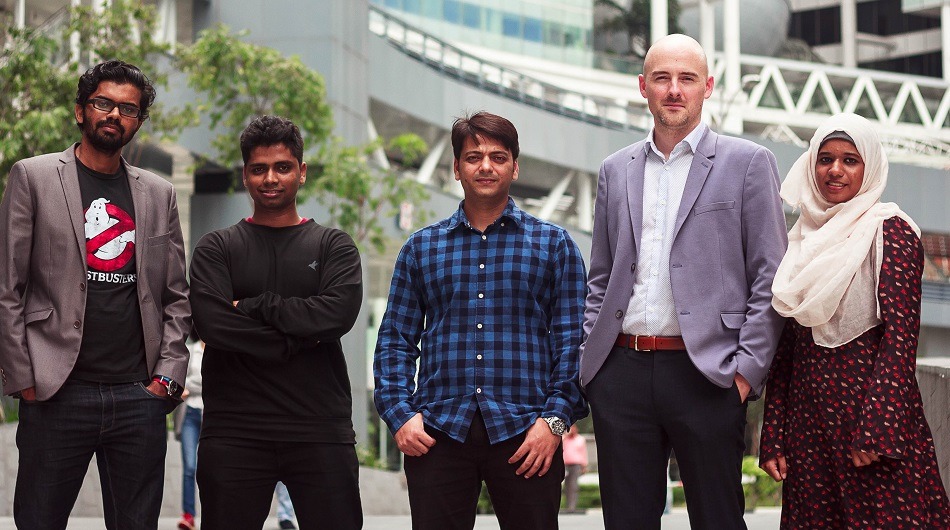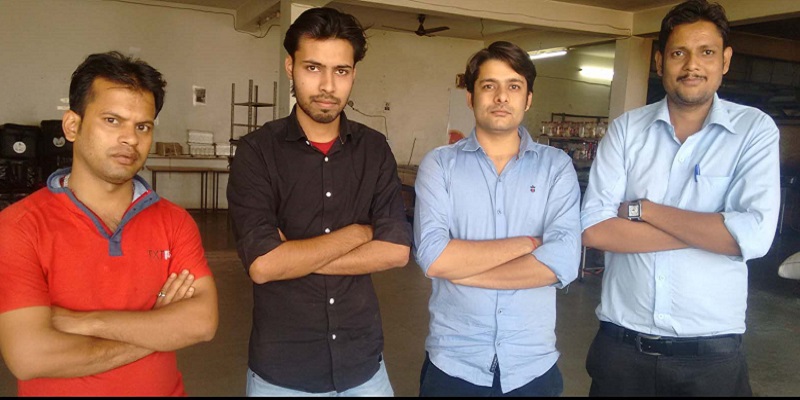Category: Business
Singapore private university, SIM to invest US$35.1 million to support entrepreneurs in Platform E
A major Singapore private university, Singapore Institute of Management (SIM) is investing S$50 million (about US$35.1 million) into an initiative to nurture future entrepreneurs and help scale startups and SMEs.
The programme for aspiring entrepreneurs which turns ideas into businesses is known as Platform E. It will be operating at a 25,000 square feet co-working space at the SIM Management House in Namly Avenue. The place will also be rented out as a commercial co-working space for non-programme participants.
The industry-agnostic programme will seek to train and equip entrepreneurs with the necessary skill sets, incubate business ideas and help startups develop their go-to-market strategies as well as identifying their product market fit. Professional corporate services, peers, investors, mentors will also be brought on board to facilitate the programme.
“SIM will adopt a multi-pronged approach to eventually includes initiatives to facilitate business startups, help small businesses scale up as well as fund promising ventures,” said a spokesperson from SIM.
Heading Platform E is Mr. Alan Wong and Professor Virginia Cha, who are the chief executive and lead programme developer respectively. Alan Wong is a veteran business advisor who has 20 years of handling both entrepreneurial startups and C-level experience in large organisations such as Cable & Wireless and Huawei Devices. While Professor Virginia Cha is an active researcher, educator, mentor and angel investor in Singapore’s entrepreneurship ecosystem with 32 years of an executive management role in technology companies.
“We believe that any good entrepreneurship programme must help the individual acquire deep business and leadership skills, and more importantly, inculcate in him the fortitude to take on and sustain a long and challenging journey,” says Mr. Alan Wong, “Platform E will equip the entrepreneur not just to run his own businesses but to also take on the role of an intrapreneur within an organisation.”
Platform E will launch in April 2017 and the entrepreneurship programme is not only open to fresh graduates, but also to professionals, managers, executives and technicians (PMETs) who are seeking a career switch. Existing entrepreneurs who meet with roadblocks are also eligible to apply.
The SIM-initiative will feature two entrepreneurship tracks – IntenseE Track and IncubatE Track which are a 12-months and 4-months programme respectively.
The longer programme is aimed at fresh graduates who are new to entrepreneurship or people looking for a career switch, equipping them with the essential know-hows to ideate, start, operate and sustain a business. The programme offers a full suite of solid grounding and will end with a pitch day where participants can showcase their startups.
On the contrary, the four-months programme is designed for mid-journey entrepreneurs who are stuck at roadblocks or have the intention to scale up their businesses. This programmes is made to impart in-depth industry knowledge and practices and will customize electives according to specific needs.
Commenting on Platform E, the Chairman of its Board of Directors and Member of SIM’s Governing Council, Mr. Tan Choon Seng says, “As we move into a future of ever greater market disruptions, entrepreneurship and innovation will be a key engine of economic growth. Platform E is SIM’s first move to support Singapore’s push in the new economy.”
Besides Platform E, SIM’s S$50 million investment will also go towards supporting promising start-ups mainly at pre-seed and seed stage.
For more information, please visit http://platforme.asia/
By Vivian Foo, Unicorn Media
NetEase, one of China’s biggest game companies is expanding into the Pork business
Chinese internet giant, NetEase (NASDAQ:NTES) which operates Blizzard’s World of Warcraft in China, on top of running a highly trafficked internet news portal is also now expanding into the business of raising organic free-range pigs, after its debut with the auction of three Jeju Black Pigs which are said to have a unique flavor.
NetEase auctioned the three black pigs over the weekend. The bidding for the first pig started at one yuan on November 25 but was in the end auctioned off at an astonishing price of 110, 000 yuan (about US$15,900). The second one fetched an even higher price of 160,000 yuan (about US$ 23,150).
The last one – a 42 kg black pig reared by NetEase was auctioned at a recorded 277,000 yuan (about US$ 40,000) on November 27, heralding the company’s seven-year experiment of rearing quality have finally validated the online gaming giant’s position in the commercial pig farm business.
Looking at this, the animal which weighed more than 42 kg, including shoulder, streaky pork, legs, etc. sees each kilogram worth more than 2,600 yuan (about US$377), which equates or even topped the price to Kobe beef, a famous Japanese delicacy.
However, for NetEase founder and CEO, Ding Lei, producing black pork is more of a public relation effort or social service rather than a profitable business. As the NetEase’s pig farm revenue with its limited production is minuscule compared to its core internet game business.
But if black pork becomes popular in China and NetEase’s pig-rearing business maintains reasonable profits, NetEase may still get a slice of China’s pork market which is worth 1.4 trillion yuan (about US$ 203 billion).
Nevertheless, CEO Ding Lei ultimate aim is not in revenue but rather to revive Chinese livestock-rearing methods and to win the government and consumer goodwill for NetEase. Proposing a science-based production of safe, healthy meat, the company will upload its model and process on the Internet.
NetEase also promises its black pork to be safe and delicious while the rearing process is environment-friendly. The black pigs at the base are fed only natural food, raised for 300 days, kept in green bamboos with smart monitoring.
It is also worth noting that the pigs learn to use the toilet and keep themselves healthy.
“Pigs at our production base use the toilets, sleep in apartments. They never take injections and medicines. In other words, their living habits are healthier than many people,” Ding Lei said, “Besides, they enjoy exclusive feed, which is provided by nutrition experts from home and abroad. I can say that the pigs are happier than pandas except for the fact that they will be eaten by people.”
This would be a long-term investment for Ding Lei, as confident of his pork quality, the NetEase CEO is also planning to establish a gourmet pork restaurant – highlighting his livestock early next year in Zhejiang Province.
Besides, 20,000 black pigs will also go on sale in December and the price will not be as expensive as in the auction, “It will costs roughly between 30 yuan and 40 yuan, depending on the parts of pigs. The price is a bit higher than the price in farmers’ markets and cheaper than the price in specialty supermarkets,” Ding Lei said.
By Vivian Foo, Unicorn Media
DataStreamX raises US$465k to help businesses buy and sell real-time data
A Singaporean real-time data online marketplace, DataStreamX has managed to secure US$ 465,000 for its pre-series A funding on Sunday.
The round was participated by VC firm Wavemaker Partners, an incubator partner of Singapore’s National Research Foundation, JFDI, and an undisclosed angel investor.
Based in Singapore, DataStreamX’s marketplace contains data for weather, traffic, finance, ship movements, and more – in a single convenient platform.
The company help facilitates the flow of data, allowing businesses to monetize their data products while providing access to streams of new data sources for companies, developers, data scientists, academics and beyond.
It has an API for both buyers to stream data to their apps after they subscribe to it, and sellers to transfer data from their sensors to the platform and offer it for sale. The company profits through taking a cut in successful transactions.
Besides, DataStreamX also offers consultancy and training services for companies who are unfamiliar with how to get value out of their data and want to learn more about how to use their data.
This has become a big part of DataStreamX business – the startup provides an efficient way of organizing and analyzing your data and helps reduce the associated costs.
With this, troves of non-personal data, like real estate or advertising, can also share their collected information across border and industry.
“We’re building tools on three different fronts: a creation of data products, assessment, and consumption”, CEO of DataStreamX, Mike Davis said.
With the fresh funding, the startup will look into how it can help companies create useful products based on their data and bring them on its platform.
Besides, the fund will also be used for talent acquisition, to staff up on sales and marketing people as well as data scientists and data engineers.
“We want to develop a strong team of enterprise people,” Mike adds.
At present, the two-year-old startup has worked with more than 400 data vendors and 500 buyers on the marketplace, with 208 products listed.
For the coming year, DataStreamX hopes to reach annual recurring revenue (ARR) of US$702,000 by the time it’s ready for its series A, around Q4 of 2017.
Besides, DataStreamX also wants to create replicable use cases for the different industries and companies it serves. For example, financial data that helps fintech companies is currently a big part of the marketplace.
DataStreamX previously raised US$368,000 in seed funding from undisclosed private investors. The company is also a graduate of JFDI’s startup accelerator.
About DataStreamX:
With the vision to see an intelligent world where data flows between companies and across silos, DataStreamX works to help unleash the power of the world’s data and strive to provide a delightful marketplace experience that connects suppliers of data and consumers of data.
For more information, please visit http://www.datastreamx.com/
By Vivian Foo, Unicorn Media
Bengaluru-based foodtech startup, Mr. Hot Foods raises seed funding via the IvyCamp platform
Food delivery services startup Mr. Hot Foods Pvt. Ltd said on Tuesday it has raised an undisclosed amount of seed funding from angel investor Pawan Raj Kumar through the IvyCamp platform.
“The addition of Pawan as a mentor to our team has helped us to understand the dynamics of Food & Beverage industry on a larger scale. His ideas and regular inputs help us in strategic decision making,” co-founder of Mr. Hot Food, Pankaj Sharma said.
Founded in 2014, by IIT Kharagpur alumni Pankaj Sharma . Mr. Hot Foods aggregates local bhojanalayas (local eating houses), thali houses, and tiffin centers to deliver homely food to users in a restaurant style of ordering with standardized packaging.
The vendors get training from professional chefs and access to analytics and technology to handle operations efficiently. Operating in Indore, Madhya Pradesh, and Kota, Rajasthan, the startup delivers more than 1500 meals daily to students and professionals who work away from home.
The company also has a weekly menu planner for a regular subscription, where a customer can plan his or her diet among 15 to 16 items per day per shift according to taste, diet, and budget. Also, Mr. Hot Foods either charges 4% of the total order cost or a fixed monthly fee from vendors.
“Our revenue model is very simple, where a customer gives us advance money to recharge online food wallet and can consume it either by filling menu planner or by ordering instant orders as and when they need. We are working on tie-ups with corporate offices and institutions by providing them food in bulk at a discounted price,” says Pankaj.
Bootstrapped, the team has been looking for external funding to expand across different parts of the country which has been met by the fundraiser facilitated by IvyCamp – an innovation and entrepreneurship platform by IvyCap Ventures, which connects entrepreneurs with mentors, investors and incubation centers through the global alumni networks of institutes such as IITs, IIMs, ISB and BITS Pilani.
Prior to this, the online food ordering business in India is estimated to be worth around INR 6,000 crore (about US$ 883 million), growing at about 30% month to month, according to a report by India Brand Equity Foundation, released earlier this year.
Commenting on the announcement, Anju Gupta, cofounder and president at IvyCamp said that, “Amidst the food tech funding pullback, we were able to get funding for Mr. Hot Foods Due to their innovation in business models and are sure they will be able to raise more via the IvyCamp platform.”
Looking at other Indian food tech startups, MonkeyBox Food Tech Pvt. Ltd, which delivers healthy food for children has also raised an undisclosed amount in seed investment from early-stage investor Blume Ventures. While in September, food-tech startup Idea Chakki Pvt. Ltd also secured an undisclosed amount of seed funding from Ratan Tata, interim chairman of Tata Sons.
By Vivian Foo, Unicorn Media
Vietnamese biggest brewer, Sabeco debuts on HOSE with shares jump 20 percent
Beer drinkers in Vietnam may have a little more to celebrate as the local brew – Saigon Beer Alcohol Beverage JSC (Sabeco) has officially posted its 641,281,186 shares at the HCMC Stock Exchange (HOSE) under the code SAB.
The shares are traded at the starting price of VND 110,000 per share (about US$ 4.80) and by the end of the first trading day, Sabeco stocks have jumped to its maximum of 20 percent up to VND 132,000 per share.
This news has excited local and foreign investors, many of whom have been waiting for further shares to become available since Sabeco initial public offering in 2008. Both events are considered separate in Vietnam.
Sabeco’s market value has also increased to 83.4 trillion dong (about US$3.6 million). This market capitalization ranked the company as the fifth largest listed firm on HOSE behind dairy firm Vinamilk (VNM), Vietcombank (VCB), Vietnam Petrol Gas Corp (GAS) and the Vingroup (VIC).
Sabeco is the state-owned maker of Saigon Beer and 333 Beer and with this event, the second largest consumer company after Vietnam Dairy Products JSC on the exchange. It’s also the largest brewer in Vietnam, where brewing Vietnam’s biggest labels “Saigon”, has reported a sales revenue of VND 21.8 trillion for the first 9 months of 2016, an increase of 9 percent year on year.
With this listing in HOSE, it will expand Vietnam’s US$77 billion stock market as it increases the size and liquidity of the benchmark VN-index, which is poised for a fifth straight year of gains.
“Sabeco’s listing is a positive and important step for a country that is embracing and liberalizing its own corporation,” said Federico Parenti, a Milan-based fund manager at Sempione Sim Spa, “The listing will be successful because the market is hungry for these type of businesses.”
In fact, seven companies including Heineken NV, Anheuser-Busch InBev NV and Asashi Group Holdings Ltd. have already registered to bid for Sabeco.
The outlook on Vietnam beer market is an enthusiastic one as demand for beer is expected to continue growing in Vietnam in light of its population increases and the expansion of Vietnam middle class.
VN Express even estimates the thirst for Saigon beer to increase by 30 percent during the upcoming Lunar New Year holiday, to a projection of 40 million liters of beer.
By Vivian Foo, Unicorn Media





